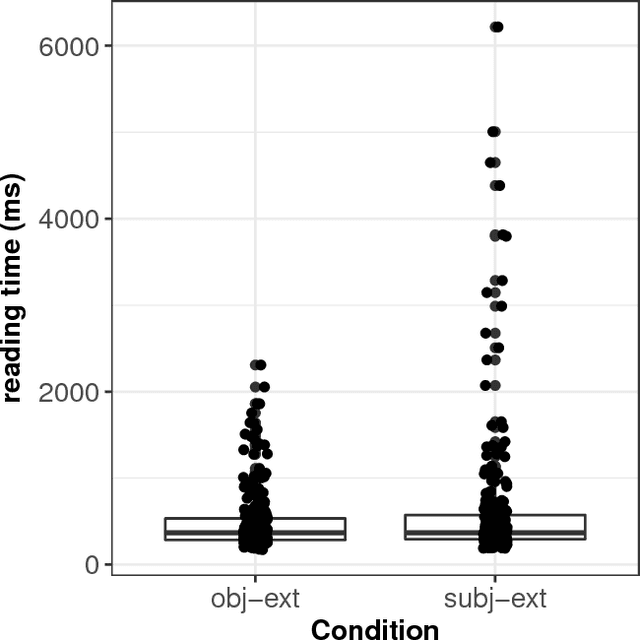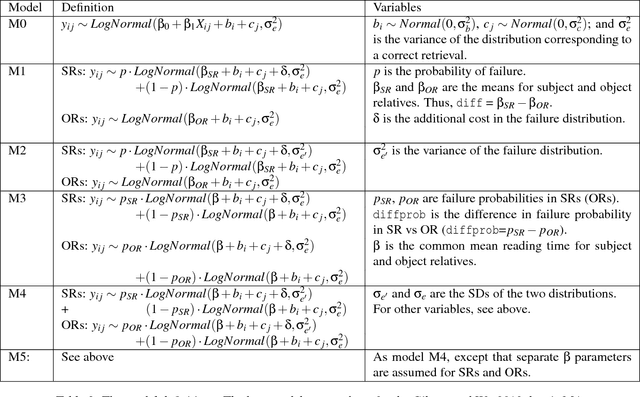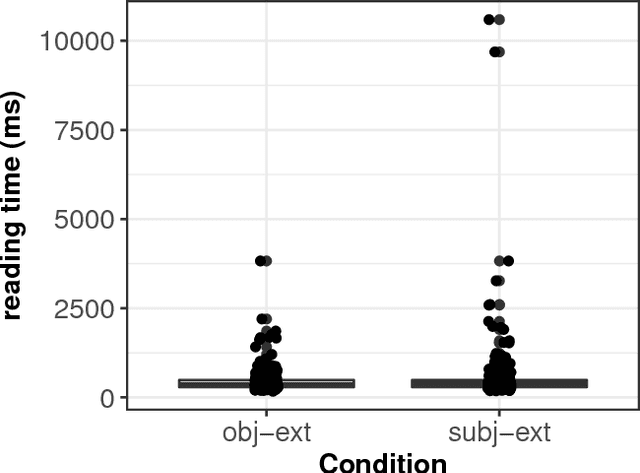Modelling dependency completion in sentence comprehension as a Bayesian hierarchical mixture process: A case study involving Chinese relative clauses
Paper and Code
May 05, 2017



We present a case-study demonstrating the usefulness of Bayesian hierarchical mixture modelling for investigating cognitive processes. In sentence comprehension, it is widely assumed that the distance between linguistic co-dependents affects the latency of dependency resolution: the longer the distance, the longer the retrieval time (the distance-based account). An alternative theory, direct-access, assumes that retrieval times are a mixture of two distributions: one distribution represents successful retrievals (these are independent of dependency distance) and the other represents an initial failure to retrieve the correct dependent, followed by a reanalysis that leads to successful retrieval. We implement both models as Bayesian hierarchical models and show that the direct-access model explains Chinese relative clause reading time data better than the distance account.
 Add to Chrome
Add to Chrome Add to Firefox
Add to Firefox Add to Edge
Add to Edge